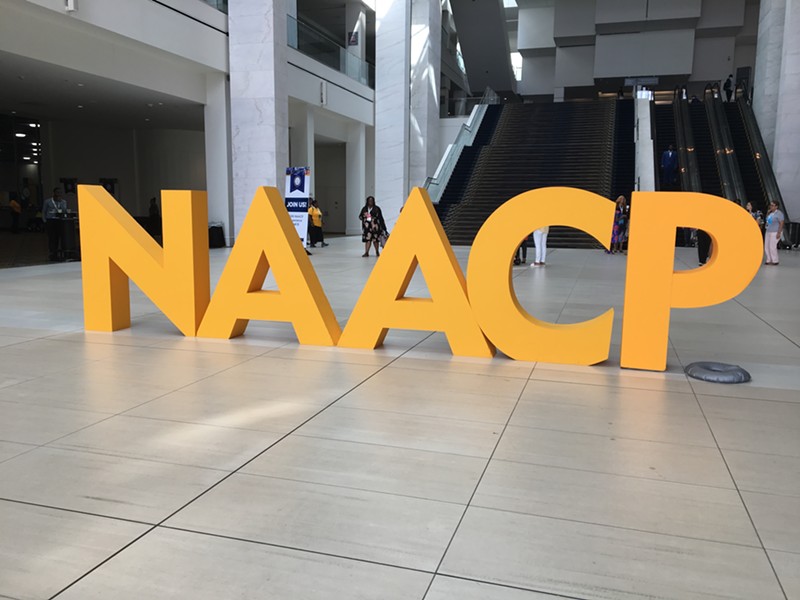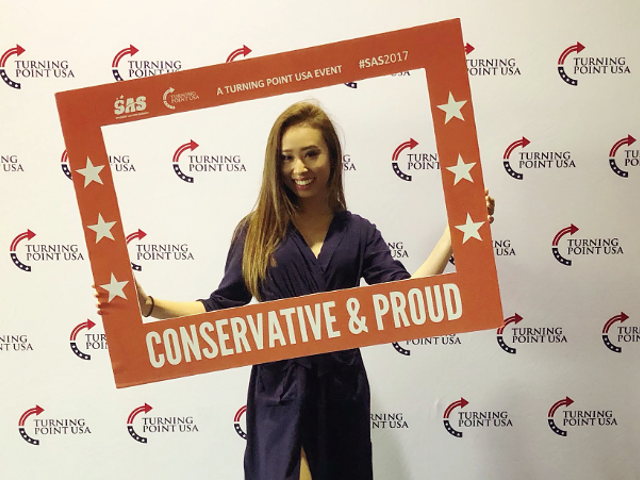Thousands descended upon Cobo Center this week for the National Association of the Advancement of Colored People's 110th National Convention. The NAACP is one of the leading civil rights groups for African-Americans nationwide.
With a theme of “When We Fight, We Win,” the event hosted speakers such as Reps. Brenda Lawrence and Rashida Tlaib, Senate Majority Leader Nancy Pelosi, and political leader Stacey Abrams.
There was also a presidential candidate forum, with 10 candidates from the Democratic party attending. Other noteworthy attendees included Gov. Gretchen Whitmer, Sens. Gary Peters and Debbie Stabenow, and Detroit Mayor Mike Duggan.
At the opening plenary on Monday morning, Tlaib made waves with a jab at President Donald Trump. Tlaib, who represents Michigan’s 13th District, also noted she was elected by a majority Black constituency and is grateful for their trust.
"I'm not going nowhere, not until I impeach this president," Tlaib said to a cheering audience.
She also emphasized a need for bold action in the face of hate, and said people cannot wait for others to take action.
"People said, 'Rashida, this is not your time,’” Tlaib said. “I said, 'When is my time, I didn't know there was a line.'"
Before the convention began, Whitmer made local headlines this morning for signing a bill designating a portion of the M-10 freeway as Aretha Franklin Memorial Highway.
Whitmer, who said she is a longtime NAACP member, told attendees that Michigan used to be a state of opportunity, but has lost its way. She said she values the work of the NAACP and that it has a role in the progress of the state going forward.
"When you truly level the playing field, there is real opportunity for everyone,” Whitmer said. "When we work together, we are the change we want to see in the world."
Similarly, Pelosi said she sees the work of the NAACP and Congress as intertwined.
“We must continue to stand for fairness, for genuine equality, and for justice,” Pelosi said. “The Democratic House stands with the NAACP in this mission as a proud partner in progress. We are here to listen and learn from you.”
Lawrence, who represents Michigan’s 14th District, used her speech to emphasize the importance of voting. She said the Black community has a powerful collective voice — and that voice must vote.
She said she has always loved America, even though America has historically not loved her back as a Black person and a woman. Voting, she said, is a major proponent of change in society.
"We, as a people, have a powerful voting bloc that we have not used to maximum capacity,” Lawrence said. "When we fight, we win. When we vote, we win."
Stabenow and Peters both highlighted the strength of the NAACP and the Black community in Detroit.
"Our African-American community is the heart of Detroit, and around that heart is a skeleton of steel,” Stabenow said.
Additionally, Peters emphasized the importance of being counted in next year’s census, as resources are distributed and voting lines are drawn based off of it. Peters told the room this is the wrong time to be silent.
“There is no question that this conference is at a very significant time in American history,” Peters said. “We are fighting for the very heart and the very soul of this country."
Detroit Mayor Mike Duggan, the final politician to speak at the plenary, reinforced Whitmer’s view of the NAACP as an institution working toward society's betterment.
'With the force of the NAACP, I know we are going to make this city and this country the place it should be,” Duggan said.
After the opening plenary concluded, a memorial luncheon was held, with Abrams as the keynote speaker. The lunch’s namesake, Clarence Mitchell Jr., was a civil rights activist and the chief lobbyist for the NAACP before he died in 1984.
Abrams, the 2018 Democratic gubernatorial candidate in Georgia, spoke for over 30 minutes on a wide range of topics ranging from immigration to criminal justice.
Issues connect back to the Black community, even if they do not on the surface, she said. Abrams gave immigration as an example, saying immigrants who come from Central America are sometimes from Africa.
"We are a beacon of freedom, and we don't get to turn the lights out because someone doesn't like who sees it," Abrams said.
The focus of her speech, however, was on ending voter suppression.
Though Abrams lost her gubernatorial bid by a small margin, she is widely seen as a rising star in the Democratic Party. She delivered the Democratic Party’s response to the State of the Union and previously served as Georgia’s minority House leader from 2011 to 2017. She currently chairs Fair Fight, an organization aimed at expanding voting access.
Her campaign, she said, was not solely about her winning the seat. She was able to spread awareness of voter suppression happening in Georgia and across the country.
"It was never about me winning an election,” Abrams said. “It was about transforming the electorate so that everyone in Georgia understands their power."
Abrams told attendees they must call out voter suppression when they see it and actively work to end it.
In addition to the importance of voting and protecting the right to vote as well as the accessibility of voting, she, like Peters, reiterated the value of the census. It is not being counted, she said, that leads to overpopulated schools and bad roads because the federal government funds communities based on population.
"I refuse to be erased from the narrative of America,” Abrams said. "Are we going to let them erase us from the story of America in 2020? I'm here to tell you: No, we are not."
Stay on top of Detroit news and views. Sign up for our weekly issue newsletter delivered each Wednesday.






